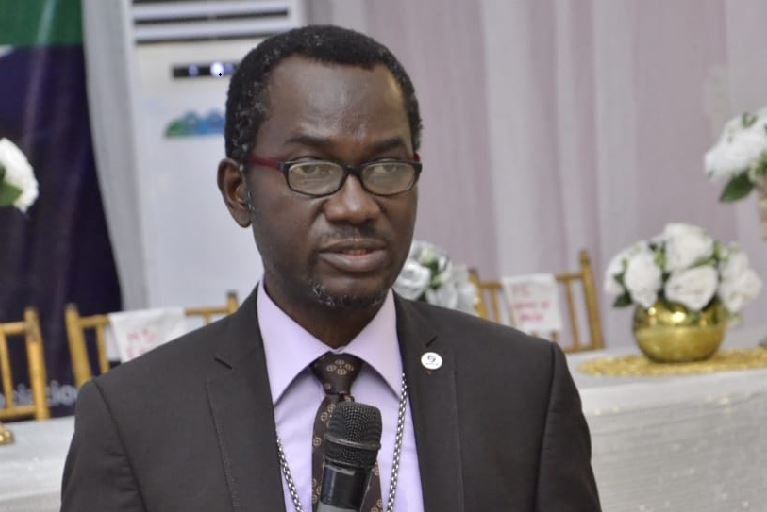Health
WMA President Enabulele Urges govts to secure Global Health beyond political declaration

The President of the World Medical Association (WMA), Dr. Osahon Enabulele, has stressed the need for global health security through the building of more resilient health systems and a resilient health workforce.
The President also called on political leaders and governments worldwide to move beyond non-binding political declarations to real commitments through visible and practical actions.
Enabulele spoke on Thursday while delivering the opening remarks at the scientific session of the 74th General Assembly of the World Medical Association, jointly organized by the Rwanda Medical Association and the World Medical Association in Kigali.
He noted that global health security “became” necessary following the spread of new, emerging, and re-emerging infectious diseases, the impact of globalized trade and travel, including cross-border movements of animals, the health impact of climate change, and the rising trend of antimicrobial resistance.
Enabulele said: “Global health security entails building resilient health systems with an integrated, robust physician-led multi-disciplinary primary health care system and an effective diagnostic and surveillance capacity.”
He further explained that it also involves building resilient health systems that are inclusive, adaptive, efficient, effective, meet present expectations, and address current and future challenges such as weak health systems, brain drain and burnout of physicians as well as other health professionals, antimicrobial resistance, and climate change.
He said, “Importantly, global health security entails expanding universal access to care and building a resilient health workforce that is highly resourced, healthy, and motivated, with decent, safe, and enabling working conditions.
“It therefore requires sustained investments in all the building blocks of the health system, including health infrastructure, medicines, diagnostics, vaccines, health management information, and surveillance systems.”
He also added that good governance and the right political commitment to the health and well-being of citizens were required to achieve global health security.
Enabulele, who also “appreciated” efforts at developing a post-COVID-19 pandemic treaty and the recently endorsed political declaration on pandemic prevention, preparedness, and response, called on political leaders and governments across the world to move beyond mere non-binding political declarations to real commitments through visible and practical actions by governments.
“We also need to continually emphasize the critical place of the health workforce in such declarations.
“The above notwithstanding, I wish to state that unless and until there is a move towards a more sincere address of the widening health inequalities, inequities, and disparities across the world, with the promotion of an inclusive and equitable world, the search for global health security may be in vain.
“A critical example of inequity in resource allocation is the case of health workforce shortages across the world. The burgeoning phenomenon of burnout and brain drain among physicians and other health professionals is one that needs accelerated global attention if global health security is to be achieved, particularly in the low- and middle-income countries of the world,” Enabulele stated.
Noting that estimates by the World Health Organization indicate that by 2030, the world will be in need of about 10 million more healthcare workers, he lamented that a lot of these deficits would be in low- and middle-income countries (LMIC) countries.
Continuing, he queried, “How can the world address this unfortunate inequitable situation through effective management of the push and pull factors, with governments on both sides of the divide made to adopt an ethical consensus with responsible management of health workforce shortages?
“How can governments be made to invest more in the welfare, working, and living conditions of physicians and other health professionals? Can the governments be taken into account in terms of their adherence to minimum benchmark expectations?”
He recalled the vaccine nationalism and inequity that manifested themselves during the COVID-19 pandemic, leaving behind citizens of most of the developing countries and having negative knock-on effects on Global Health Security.
Enabulele said the outrage that followed the unfortunate inequity in resource allocation reinforced the saying that ‘no one is safe until everyone is safe’.
Enabulele said, “If global health security must be attained, this saying must be reckoned with not only in words but in concrete action. In this regard, the frontiers of global cooperation and global solidarity must be continually oiled and advanced.”
Speaking of the unending conflicts and wars like the Russia-Ukraine war, he argued that it was necessary and significant to engender Global Health Security.
“We must therefore sustain our call for a cessation of this and other senseless conflicts and wars around the world,” Enabulele stated.













